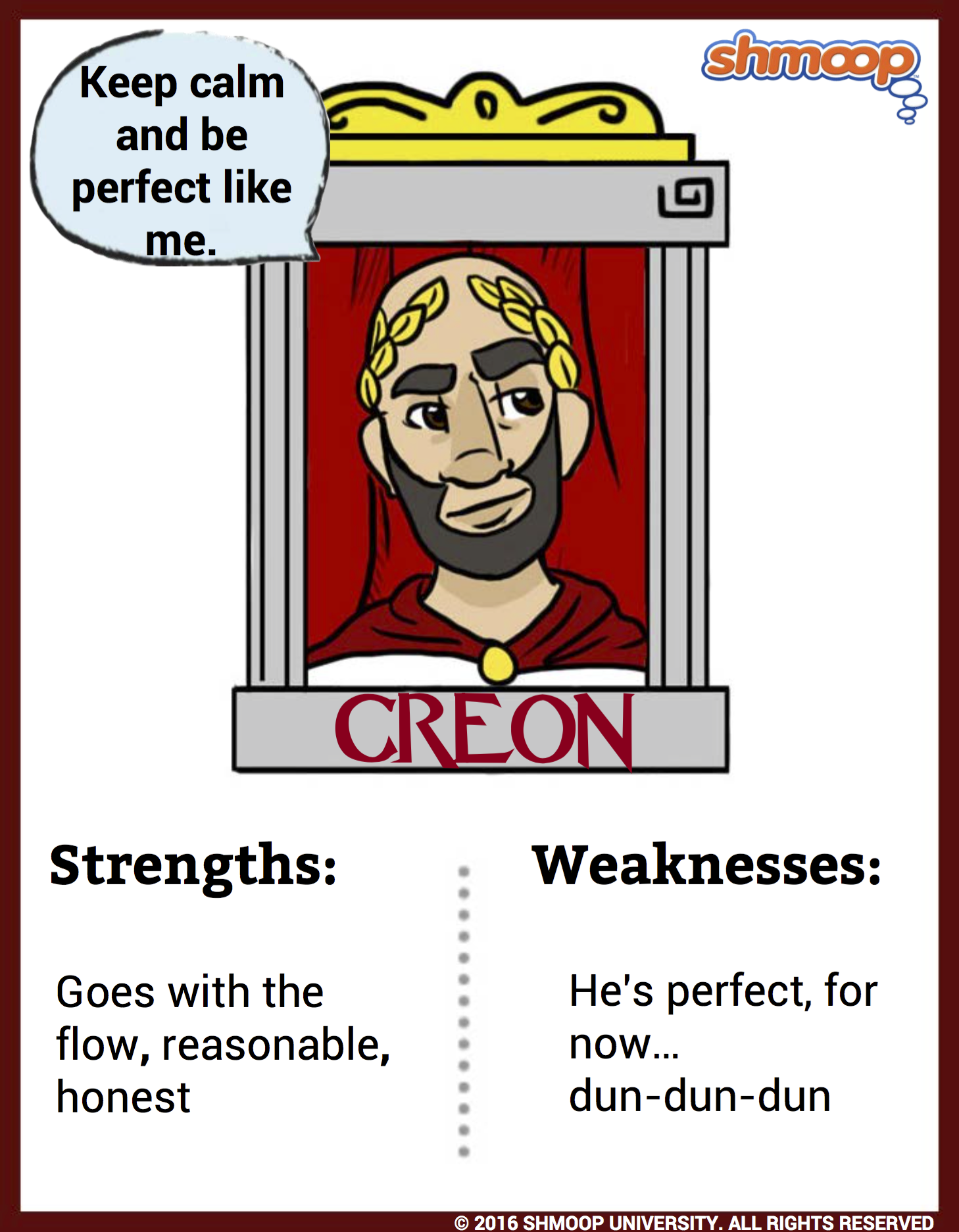Character Analysis

(Click the character infographic to download.)
Creon Is Like Mary Poppins
They're both practically perfect in every way.
Creon is portrayed as a pretty stand-up guy. He shows himself to be honest, forthright, and even tempered. The best example of Creon's reasonable nature happens when Oedipus accuses him of conspiracy. Instead of getting mad at his paranoid brother-in-law (and nephew), Creon offers a rational explanation as to why he has no desire for Oedipus' crown:
CREON Not so, if thou wouldst reason with thyself, As I with myself. First, I bid thee think, Would any mortal choose a troubled reign Of terrors rather than secure repose, If the same power were given him? As for me, I have no natural craving for the name Of king, preferring to do kingly deeds, And so thinks every sober-minded man. Now all my needs are satisfied through thee, And I have naught to fear; but were I king, My acts would oft run counter to my will. How could a title then have charms for me Above the sweets of boundless influence? [...] I would as lief a man should cast away The thing he counts most precious, his own life, As spurn a true friend. Thou wilt learn in time The truth, for time alone reveals the just; A villain is detected in a day. (583-615)
For one, Creon already has all the power he wants. Because he is the brother of Oedipus' wife, he basically has the same amount of status as Oedipus. Everybody sucks up to him to try and get to the king. If Creon had the crown he would have basically the same amount of power but ten times the headache. Who would want that? In this scene, Creon’s rationality stands out in stark contrast to Oedipus' angry paranoia.
Creon's argument is also strengthened by the fact that he's the one who gave Oedipus the crown in the first place. After the death of Laius, Creon was the King of Thebes. When the Sphinx started tormenting his city, he proclaimed that anybody who could solve her riddle could have his crown and the hand of his sister, Jocasta. Oedipus solved the riddle, and Creon proved to be a man of his word. A person who was truly power hungry would've gone back on his promise.
In the last scene of Oedipus the King, Creon also shows himself to be forgiving. Rather than mocking Oedipus, who has just accused him of some pretty terrible things, Creon is gentle. He brings the mutilated and grieving Oedipus inside, away from the public eye and also promises to care for the fallen king's children. In the end, it is only at Oedipus' request that Creon banishes him from Thebes.
But Creon's good guy status doesn't last. Creon doesn't come out quite so well in Oedipus at Colonus and nowhere near as good in Antigone. To learn more, check out these next two plays in the trilogy.
Creon's Timeline